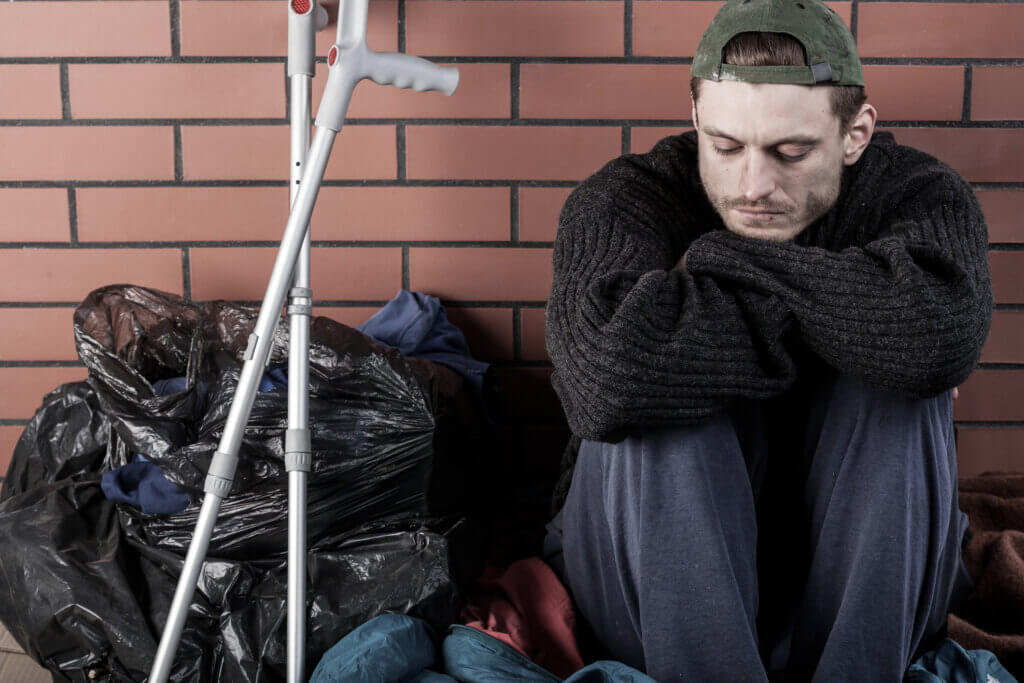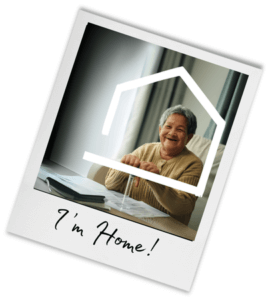
Housing First at Its Core |
Housing First at its core is a simple and obvious suggestion: |
Since homelessness is the condition of not having a home, our work with those experiencing homelessness should focus first on a person becoming stably housed. |
- Reuniting a person with family that can provide housing is Housing First.
- Providing temporary housing assistance to someone who is recovering from surgery before they can get back to work is Housing First.
- Getting someone with a job into a home quickly is Housing First
- Rental assistance for someone whose retirement income is not enough to pay the rent is Housing First.
- Rental assistance and ongoing supportive services for those with the greatest challenges, so they get off the streets, is Housing First.
In other words, Housing First meets a person where they are, considers what resources they have now, what barriers they face now, what pathologies they suffer from now, and provides an appropriate intervention and support to sustainably end their homelessness.
The enormous advantage of a Housing First approach is that it leverages a critical truth: Nearly everyone suffering from homelessness wants to be housed. For instance, 90% of the unsheltered homeless surveyed in Boulder said they want to be housed, and it does so without requiring a person to make an enormous, lengthy, often unlikely change or transformation in order to be housed.

Are there other interventions that can end homelessness? Sure. Rather than directly addressing the resource barriers to housing, some approaches focus on changing an individual so she or he can gather resources to be housed, like sobriety or job training. Generally referred to as Treatment or Work First approaches, these programs usually require long-term engagement in a Shelter-type setting.
Most often, these programs accept those who are able bodied, free of mental health issues, unmedicated, able to stay sober, and willing to work in the specific jobs offered by the program. The clients often pay part of their wages back to the program, honor strict program structure, rules, and so forth.
While these programs often correctly identify some issues that lead to homelessness on an individual level, their disadvantage is that only the able bodied homeless who are free of significant pathology and have the motivation for this specific type of long-term programming and significant transformation fit into the model. Unfortunately, in our long experience few of those we work with, who have faced a long life of misfortune and serious medical challenges, and frankly lack hope or trust, view these types of programs as opportunities. When they do, they often don’t meet the acceptance criteria.
For example, here is a partial list of the types of folks who do not fit into a Treatment First or Work First model:
- Those who cannot find sobriety
- Those who are mentally ill/suffer from behavioral issues
- Those who are not able bodied, or are elderly and cannot work
- Those who cannot or will not live in a shelter setting for an extended period.
For a small group of people, this approach can be successful, but because of the lack of broad appeal, it is limited, primarily accessible to those facing lower barriers to housing. Generally though, as a community, we need to pursue solutions that work at scale, with a broad impact, especially on unsheltered homelessness.
To put it simply, think of Treatment/Work First as a high-end university – great for a small group of higher achieving students, but not designed to address our larger educational challenges. To the contrary, think of Housing First as public high school, which must provide the basics and work reliably for nearly every student.
 And I assume you agree with me that there is room for both high-end universities and public high school.
And I assume you agree with me that there is room for both high-end universities and public high school.
At All Roads, we have decided to focus on providing the basics: a home and a foundation to climb higher, which is what everyone deserves. But we also celebrate specialized approaches like Treatment First and Work First when appropriate, and this does raise an important question. Treatment is important. People are suffering from all kinds of serious pathologies including mental health and substance use disorders. Doesn’t Housing First and All Roads care about this?
Of course we do, but it is critically important to remember that nearly everyone faces their pathological challenges from the warmth, comfort, stability and safety of a home. 99% of those with addiction issues are housed. 99% of those struggling with mental health issues are housed. 99% of those with chronic health conditions are housed. 99% of those who pursue any treatment are housed. Our argument is again very simple: No one should be homeless, and treatment is almost always best pursued from a home.
My colleague at All Roads, John, is a great example. Wanting to work, his heart disease prevented him from doing so without risking his life, yet no specialist was willing to perform heart surgery on someone who did not have a stable home to recover. Once placed in housing, John got surgery and now he is giving back to the homeless community he left by working at All Roads. The story reinforces the truth about Housing First and how it supports treatment but also how the Treatment First/Work First approach is often too narrow. John needed a home first.
Sam’s story is different. He suffers from Parkinson’s Disease, can’t work, and his disability income didn’t come close to paying his rent. No amount of job training or sobriety programing was going to help Sam. He needed a home and we provided one …..10 years ago. Once housed his Parkinson’s stabilized and he now helps neighbors with their bike repairs when his symptoms aren’t too bad.
I love analogies, and I thought of one the other day. Let’s say you come across a poor soul who is lying on the ground shoeless. Your gut reaction would probably be, “let’s get you some shoes and back on your feet”. That’s Housing First. Let’s get you into a home and back on your feet. Let’s get you into a home and get you moving forward. Let’s get you into a home and onto a road to recovery.
We have placed and support 260 of our neediest neighbors in their homes every day. Hundreds and hundreds more have been housed with our help. Any road. All Roads. For the homeless, it begins with a road home.


Michael Block,
CEO, All Roads



